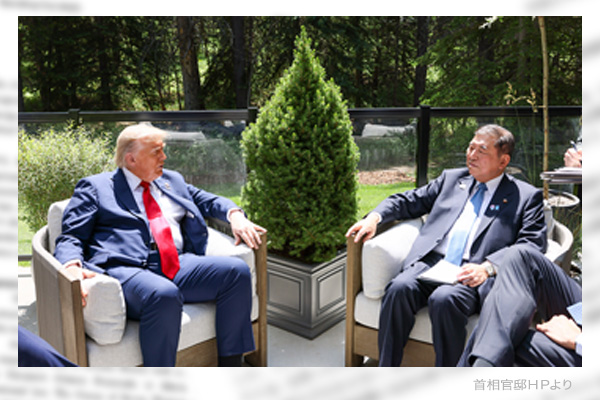Japanese Prime Minister Shigeru Ishiba has frequently faced criticism for his double standards since taking office last autumn. His remarks reflecting these double standards resurfaced in response to U.S. and Israeli attacks on Iran.
On the afternoon of June 22, Ishiba refrained from assessing the U.S. attacks on Iran’s nuclear facilities, saying: “Japan believes that it is of utmost importance to de-escalate the situation as soon as possible. At the same time, Iran’s development of nuclear weapons must be prevented.”
The remark stood in contrast to his statement on June 13, made immediately after Israel’s airstrikes on Iran. “They are completely unacceptable. They are extremely regrettable and we strongly condemn them.” Commenting on the Japanese government’s unusual condemnation of Israel, a government official said, “If we tolerate the attacks, it will send the wrong message to China and North Korea.”
Inconsistent with condemnation of Israel
If that is the case, both the United States and Israel carried out preemptive strikes. If Ishiba criticized Israel, he should also criticize the U.S. by the same standard. As expected, however, Ishiba could not do so — because Japan is protected by the U.S. nuclear umbrella.
Before taking office, Ishiba insisted that it was the responsibility of the state to verify the effectiveness of deterrence under the nuclear umbrella. However, given his talks with U.S. President Donald Trump, it is clear that he lacks the courage to condemn Trump.
Given that, Ishiba should not have condemned Israel. It would be out of the question if he criticized Israel on concern that defending Israel’s attacks would affect his ruling Liberal Democratic Party towards the imminent Tokyo Assembly and House of Councilors elections.
If Abe were alive
As a matter of course, Ishiba was not informed in advance by Trump of the U.S. attacks. What would have happened if the late former Prime Minister Shinzo Abe, who was close to Trump, had still been serving as prime minister? Former aides to Abe say Trump would likely have consulted with him about the planned attacks on Iran during the Japan-U.S. summit on the sidelines of the Group of Seven leaders’ meeting in Canada in mid-June. One former aide speculated that Abe might have argued:
“If you want a one-shot deal, you may attack nuclear facilities. But it should be a one-off strike. Iran should at least be allowed to enrich uranium for nuclear power generation, on the condition that the process be subject to strict global monitoring, just like in Japan.”
Abe might have taken action to de-escalate the situation much earlier. Under the current circumstances, however, he might have recommended a limited strike. While it may be futile to speculate on what might have happened if Abe were still alive, there is no doubt that he would have pursued a diplomatic approach — unlike Ishiba’s lukewarm attitude as reflected in his evasive comment that his government would “properly consider” whether to support the U.S. attacks.
Iran has long been a friend of Japan. Rather than debating whether to support the U.S. attacks, Japan must utilize all available tools to help prevent further escalation. That is the kind of diplomacy Ishiba should pursue.
Takashi Arimoto is a Planning Committee member at the Japan Institute for National Fundamentals and a columnist at the Sankei Shimbun newspaper.


